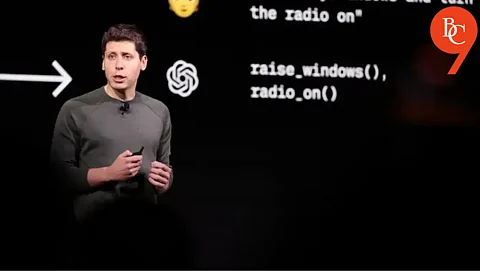

In a world where artificial intelligence is reshaping every facet of society, the very nature of work is undergoing a seismic transformation. OpenAI CEO Sam Altman, a leading voice in the AI revolution, has sparked debate with his latest prediction: as technology advances, jobs will continue to evolve often appearing “sillier and sillier” compared to the essential roles of the past.
Altman’s comments draw a striking contrast between the physically demanding, survival-driven work of farming and today’s digital-era occupations, such as podcasting and content creation. “If you look at the arc of human employment, we’ve gone from people growing food to people recording hours of conversation for the internet,” Altman observed. The implication is clear: as societies become more technologically advanced, the definition of valuable work shifts dramatically.
The rise of automation and AI is rapidly taking over routine, repetitive, and even some creative tasks. As machines handle more of the world’s essential production and logistics, humans are increasingly drawn to roles centered around entertainment, influence, and digital interaction. Podcast hosts, social media influencers, and content creators once unimaginable as “real jobs” are now lucrative, mainstream career paths.
Altman suggests this trend will only accelerate. As AI continues to automate knowledge work, humans will invent new forms of employment that may seem trivial or even absurd by traditional standards. Yet, these jobs will fulfill emerging social, cultural, and psychological needs in a world where basic survival is no longer the central concern.
One of the clearest examples of this shift is the rise of the “podcast bro”—a term describing individuals who build careers around hosting, producing, and monetizing podcasts. What began as a hobby for a handful of enthusiasts has exploded into a global industry, with millions tuning in daily for news, entertainment, and advice. The success of podcasting, Altman argues, is emblematic of how technology enables new, unconventional forms of work that would have seemed frivolous in the past.
While Altman’s use of the word “silly” may sound dismissive, it actually highlights a deeper truth: the value of work is not fixed, but evolves with society’s needs and technologies. Farming was once the backbone of civilization; today, digital creators shape culture, spread information, and build communities. What matters is not whether a job looks “serious” by old standards, but whether it meets the needs of the present.
Looking ahead, Altman predicts that as AI becomes more capable, the cycle of job reinvention will only speed up. New roles will emerge that we can scarcely imagine today some may seem even “sillier” than podcasting, but each will reflect the changing priorities and possibilities of the time.
For individuals and societies, the challenge is to remain adaptable, embrace lifelong learning, and recognize that the future of work may be less about necessity and more about creativity, connection, and meaning.
